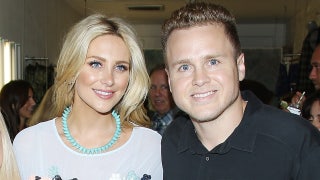"True Detective" could drive you to drink. Its second season (Sunday on HBO) arrives under cover of such darkness and psychic pain it seems to beg its audience to keep a bottle close by in a display of unity with its hard-drinking protagonists.
"You tying one on?" asks Frank Semyon (series star Vince Vaughn), an enterprising but beleaguered mobster, as he sits across from tormented Detective Ray Velcoro (co-star Colin Farrell) and watches him drain glass after glass of Frank's pricey Johnny Walker Blue.
"Not particularly," grunts Velcoro, filling his glass again.
Of course, if you were to tie one on while watching "True Detective" you might realize you're not the sort of high-functioning alcoholic represented by Detective Velcoro, who serves the city of Vinci, a corrupt, industrially ravaged neighbor of Los Angeles. Or by Ani Bezzerides (Rachel McAdams), a hard-bitten Ventura County sheriff's detective.
Stick to soft drinks. "True Detective" this season, even more than last, demands a viewer's full attention to absorb the twisting, multilayered puzzle taunting Ray and Ani, along with Paul Woodrugh (Taylor Kitsch), a troubled war veteran and California Highway Patrol motorcycle cop, as well as Frank, whose make-or-break-him real-estate deal is thrown in jeopardy, as they all converge on a pivotal event: the eerie murder of a Vinci city official.
That, in a nutshell, is what this season's "True Detective" encompasses: law-enforcement officers (the series title still applies) and attempts to find answers to a crime whose search is complicated by ulterior motives. (Hear Ray addressing a superior in a future episode: "One question. Am I supposed to solve this or not?")
But what "True Detective" is this season may be no more important than how it differs from last season, which, of course, was a triumph starring Matthew McConaughey and Woody Harrelson as they tackled, in effect, not one but two roles apiece: former Louisiana State Police detectives being interrogated in 2012 about a homicide case that they were seen, in flashbacks, working in 1995.
Although Vaughn and Farrell are the nominal co-leads this season, and excellent, the new saga doesn't call for last year's two-man actors' showcase in a dual time frame. These co-stars are fused into this season's larger ensemble, in the present tense.
What truly ties the "True Detective" seasons together: the voice and vision of Nic Pizzolatto. He created the series, wrote all last year's episodes and has repeated that feat for the upcoming eight hours. And he apparently has never heard the expression "If it ain't broke, don't fix it," having ditched the buddy-drama format that worked so well to do his thing in other, different ways this time.
How he's done it should become increasingly evident beyond the three episodes made available for preview. But he has clearly retained last year's "weird fiction" atmospherics of the Louisiana bayou despite relocating to an urban world. In this factory-and-refinery-choked corner of L.A., the macabre is in evidence, even in the interstitial aerial shots of tangled freeways, where cars look like corpuscles coursing through blood vessels.
As before, Pizzolatto's characters seem fated to be cruelly denied whatever they want most.
Frank wants a child with his lovely, supportive wife, Jordan (Kelly Reilly).
Paul, the highway patrolman, wants to be returned to duty as a motorcycle cop, but that seems unlikely after he gets into a scrape.
Ray wants a comfortable relationship with his young son, which seems as far out of reach as this unmet dream: "I used to want to be an astronaut," he says. "But astronauts don't even go to the moon anymore."
Yet another way "True Detective" stays true to its past: its darkness.
Even darker than last year, this season sets out on one very black journey, both visually and tonally. A key scene in the season premiere occurs in a bar, perhaps the dimmest bar in TV history, where the entertainer — a wan young woman with a guitar — sings maybe the most melancholy song ever heard. Its refrain: "This is my least favorite life."
Ahead, "True Detective" is absorbed with least favorite lives, which makes it just as fascinating, if not more so, than ever. But be warned: You may long for a flashlight.














































